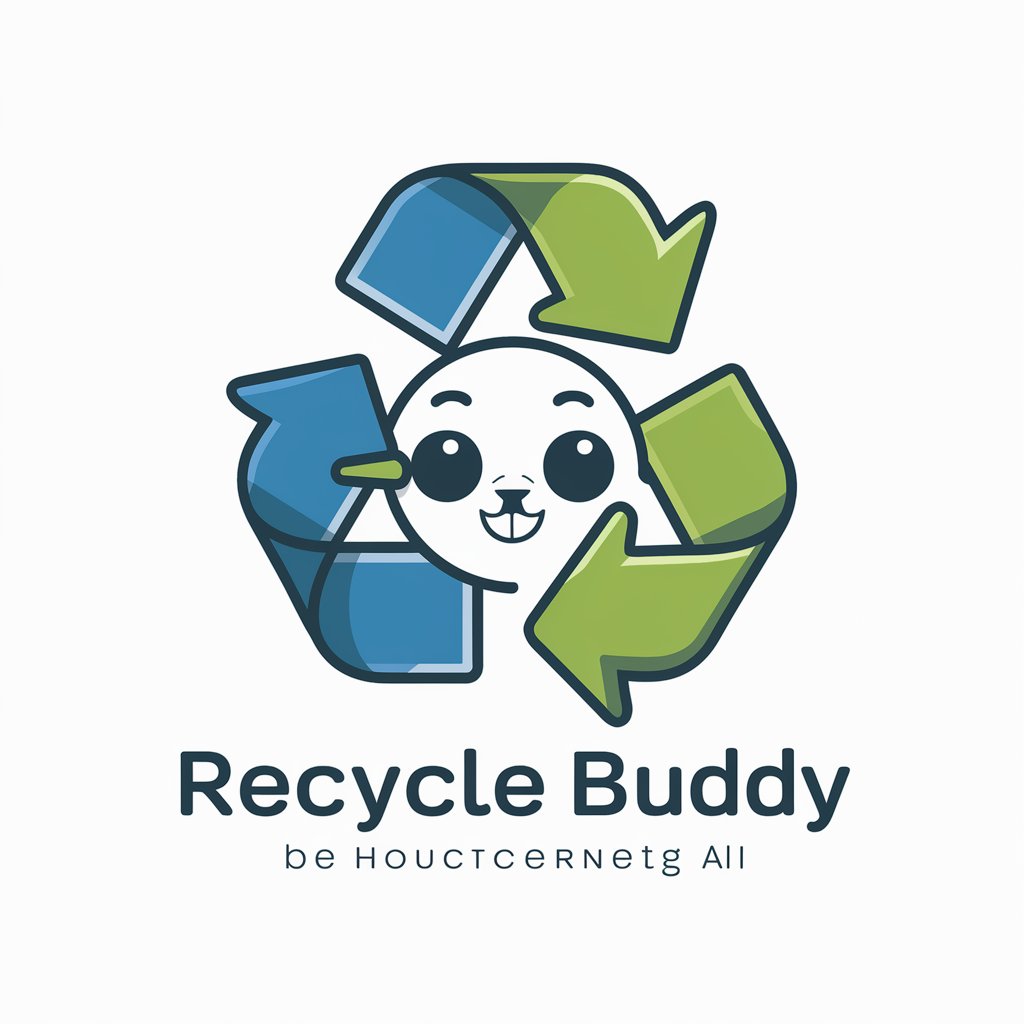5 GPTs for Eco-Friendly Habits Powered by AI for Free of 2026
AI GPTs for Eco-Friendly Habits are advanced AI tools designed to promote sustainability through personalized advice, insights, and solutions. Leveraging the power of Generative Pre-trained Transformers (GPTs), these tools offer tailored support for adopting and maintaining eco-friendly practices. They analyze vast datasets to provide actionable recommendations, helping individuals and organizations minimize their environmental footprint. Their significance lies in the ability to deliver precise, context-aware guidance, making sustainability accessible to everyone.
Top 5 GPTs for Eco-Friendly Habits are: IKITOMU Circular Sage,Recycle Buddy,Eco Mentor,Environmental Conservation,🌱 GreenPath Sustainability Guide 🍃
IKITOMU Circular Sage
Empowering eco-friendly decisions with AI wisdom.

Recycle Buddy
Smart recycling at your fingertips.

Eco Mentor
Empowering eco-friendly decisions with AI

Environmental Conservation
Empowering Eco-Friendly Decisions with AI

🌱 GreenPath Sustainability Guide 🍃
Empowering Sustainable Choices with AI

Key Attributes of Eco-Friendly AI GPT Tools
These AI GPT tools stand out due to their adaptability across various eco-conscious practices, from waste reduction to energy efficiency. Core features include the ability to learn and evolve with user interaction, offering personalized tips for sustainable living. Special capabilities range from language processing for educational content, technical support for green tech implementation, advanced web searches on sustainability topics, to generating eco-focused imagery and analyzing environmental data for informed decision-making.
Who Benefits from Eco-Conscious AI Innovations
The primary users of AI GPTs for Eco-Friendly Habits encompass eco-conscious individuals, sustainability advocates, environmental professionals, and developers looking to embed green practices into their projects. These tools are engineered to be accessible to users without coding expertise while offering deep customization options for those with technical skills, ensuring a wide range of applications from personal habit tracking to corporate sustainability planning.
Try Our other AI GPTs tools for Free
Child-Friendly Activities
Explore how AI GPTs tailor child-friendly learning and entertainment, ensuring safe, engaging, and educational experiences for younger audiences.
Technology Licensing
Discover how AI GPTs for Technology Licensing revolutionize the management and automation of technology transfer, offering tailored solutions for legal documentation, negotiation, and intellectual property insights.
Eco-Innovation
Discover how AI GPTs for Eco-Innovation are revolutionizing sustainability efforts, offering tailored AI solutions for environmental challenges. These tools support global eco-innovation with intuitive interfaces, predictive analytics, and integration capabilities.
Confidentiality Protection
Discover how AI GPT tools for Confidentiality Protection revolutionize data privacy with advanced, user-friendly solutions for all.
Business Partnerships
Discover how AI GPTs for Business Partnerships can transform your approach to finding, managing, and optimizing business relationships with tailored, AI-driven solutions.
Joint Ventures
Explore how AI GPTs for Joint Ventures revolutionize partnership management with tailored solutions for analysis, documentation, and strategic decision-making.
Expanding the Horizons of Sustainability with AI
AI GPTs for Eco-Friendly Habits redefine the approach to sustainability by making it more accessible and personalized. Their capability to integrate with existing tech ecosystems and their user-friendly interfaces remove barriers to adopting green habits, showcasing the potential of AI in catalyzing positive environmental change across different sectors.
Frequently Asked Questions
What exactly are AI GPTs for Eco-Friendly Habits?
AI GPTs for Eco-Friendly Habits are artificial intelligence systems designed to promote sustainable living by providing personalized advice and solutions tailored to reducing one's environmental impact.
How do these tools personalize recommendations?
By analyzing user input, preferences, and interaction patterns, these AI systems adapt their advice and suggestions to each individual's lifestyle, making their guidance on eco-friendly habits highly relevant and practical.
Can non-technical users easily interact with these GPT tools?
Yes, these tools are designed with user-friendly interfaces that allow non-technical users to benefit from their capabilities without needing programming knowledge.
Are there advanced customization options for developers?
Absolutely. Developers can access APIs and coding frameworks to integrate and customize the AI's capabilities, tailoring it to specific environmental projects or platforms.
What kind of eco-friendly topics can these tools cover?
They span a wide range, including but not limited to, waste reduction, sustainable eating, energy efficiency, green travel options, and eco-friendly product choices.
Can these AI tools integrate with existing platforms or applications?
Yes, with their flexible APIs and modular design, these AI tools can be seamlessly integrated into existing systems or workflows, enhancing their eco-friendliness.
How do these tools help in making informed decisions?
By providing data-driven insights and analysis on environmental impacts, these tools empower users to make choices that are more aligned with sustainability goals.
Do these AI systems require continuous internet access?
While some functionalities might require internet access for real-time data analysis and updates, many features can be used offline once the necessary data is downloaded.